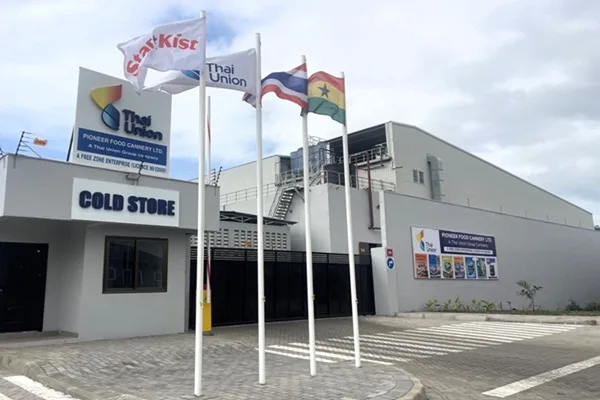Thai Union Invests $14M to Enhance Cold Chain Logistics in Ghana
Thai Union is a company from leading global seafood company from Thailand specialising in fishing and value-addition of seafood. It annual revenue reaches nearly USD 4 billion and employs some 44,000 people globally.
On 18 July 2024, Thai Union officially unveiled its brand new cold storage in Tema. The facility required an investment of USD 14 million and will have a capacity for 8,000 tonnes of tuna.
To preserve the quality of tuna meat, storage temperature have to reach as low as -40C. The design of the cold storage facility lays emphasis on energy efficiency in a bid to minimize its carbon footprint.

Previously, Thai Union leased cold storage space in various locations across Tema. By having its own refrigerated warehouse, it will not only have better control over the integrity of the cold chain but looks forward to making substantial savings.
It was in 2010 that Thai Union entered into the Ghana market via the acquisition of Pioneer Food Cannery (PFC) which produces canned tuna. Situated on the Gold Coast, the cannery has now developed into the largest canned tuna manufacturer in Ghana.
“Our PFC factory plays a vital role for our brands across Europe and the U.S. This investment will further improve our supply security and competitiveness serving our customers. The next investments into PFC will be delivering towards our SeaChange 2030 Sustainability Plan, such as further lowering their emissions by installing solar panels and implementing measures to minimize waste to landfill, water discharge, and food loss.”
Thai Union President and CEO Thiraphong Chansiri
Currently, PFC also produces canned tuna on an OEM basis for famous international brands such as the US ‘Chicken of the Sea’, British ‘John West’, the French ‘Petit Navire’, or the Italian ‘MareBlu’.
The canned product is marketed and sold under the Starkist Tuna brand. It is worth highlighting that Ghanaians rely up to 60% on seafood as their source protein. Most the fish brought to shore were traditionally dried, salted or smoked. Subsequently, preservation via canning was introduced.

